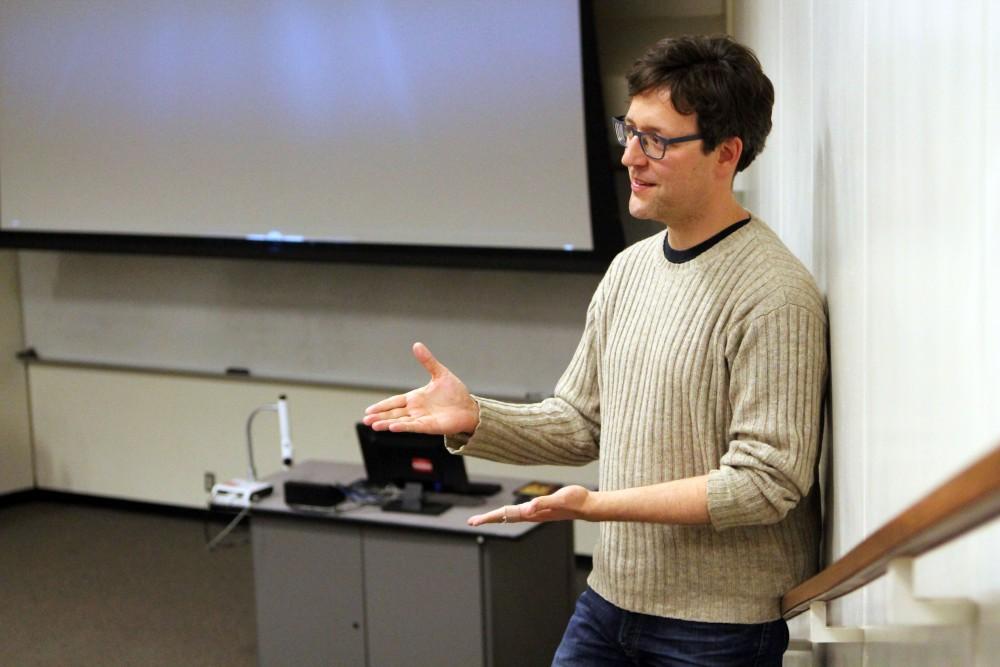Classic film series sparks controversy

GVL / Emily Frye Professor David Crane
Oct 23, 2014
Students are invited to participate in a film and stage series revolving around modern adaptations of classic Greek and Roman texts which will draw them out of their comfort zones. The College of Liberal Arts and Sciences is hosting its first ever fall classic film and stage series at Grand Valley State University.
“Hedwig and the Angry Inch,” the fourth movie in the series was shown Tuesday on GVSU’s Allendale Campus. The films are related to texts being taught in the university’s classics courses.
“The purpose is to raise awareness of how modern literature still engages with these ancient texts,” said David Crane, associate professor of classics. “In this series, the films are all key to different texts being taught in these courses. “
The films are complementary to ancient texts and each screening includes a discussion of the relation between the film and text. They bring ancient discussions and ideas to light with a modern twist.
Freshman Jacqueline Ewing said the series has helped her to make sense of some of the readings for her classics course. Ewing said having something modern and real to compare it to made the texts easier to comprehend.
“Hedwig and the Angry Inch” told the tale of a transgender woman musician in search of her other half.
The story is directly related to Aristophanes’ Speech in Plato’s Symposium, which addresses the ancient Greek myth that there once were three types of human beings, not just male and female. There was a third in combination of the two. According to the myth, Zeus decided to split human beings in half in order to weaken them.
Crane said the movie brings about a forceful discussion of sexuality, love and desire.
He added that the goal is not to show only controversial films but to also show classics which may contain controversial elements.
Crane said that during the last film “Contempt,” a French film based on Homer’s Odyssey, one student got up and left.
“Films that make people uncomfortable can also lead to interesting discussion,” he said. “People will be less inhibited about volunteering an idea, because they will have a strong reaction to what they saw.”
Crane said discomfort is something that everyone experiences.
“Representing in a really radical way is maybe getting people to confront it,” Crane said.
Professor Bice Peruzzi from the classics department agreed with Crane, saying that reading texts that go beyond one’s comfort zone is beneficial.
“I think it is good that you try to put yourself outside your comfort zone, and think about a completely different system of behaviors,” Peruzzi said.
Crane spoke about how the films and texts might encourage individuals to reflect on difficult aspects of their lives, going beyond the mainstream. He referred back to the movie, where the main character Hedwig travels to Kansas. He said that this can show that fringe elements exist everywhere.
“When you start really reflecting on it, you have to entertain thoughts you haven’t entertained before and think about it from different angles,” Crane said. “I think this film is at least suggesting that even middle America has fringe elements in it, but they need to sort of reconcile and harmonize and form into one integral whole.”
Crane said the Symposium, or the other texts which the series will address, will not only appeal to someone who might consider themselves more on the fringes but also to a more radical right.
He said that President George W. Bush used Plato’s speech to help decide what it means to be human while investigating the morality of stem cell research.
The series will include four more films. The next one will be “Medea,” based on Euripides’ play of the same name. Crane said it addresses ancient racism.























